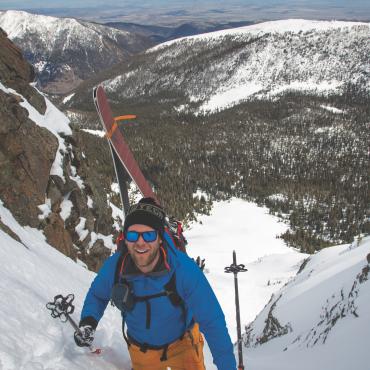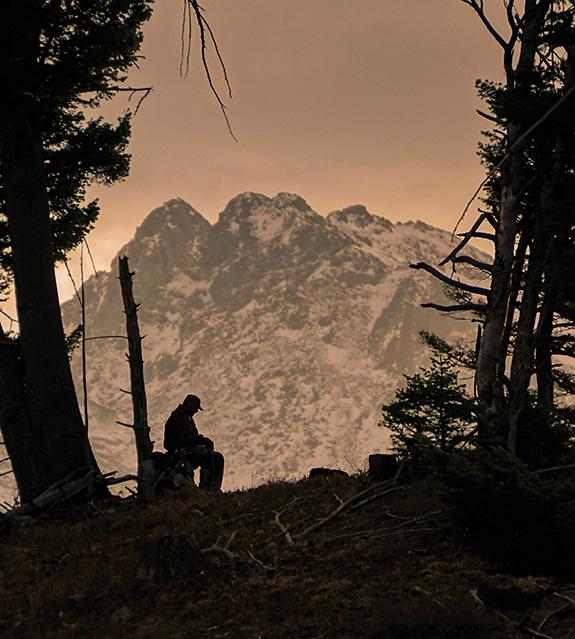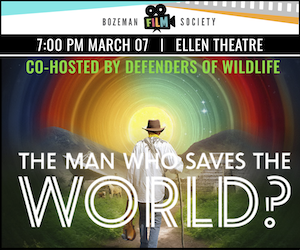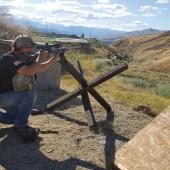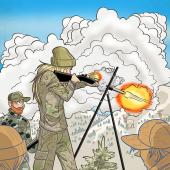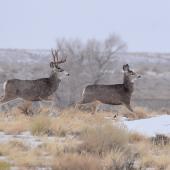The Things We Remember
Hunting for something more.
“You can’t always get what you want, but if you try sometimes, you’ll find you get what you need.” —the Rolling Stones
It’s funny the things we remember. Each day we have hundreds of experiences; we see thousands of images; we converse with dozens of people. And yet the things that we file away for later—the scenes or scents or sounds that return to life later as memories—are completely unpredictable. For me, nothing exemplifies this better than what I remember from hunting.
Last fall, I got skunked. For the first time in six years, I didn’t fill my freezer. It wasn’t for lack of trying, but for a variety of reasons, I never quite pulled the trigger. Ironically, I have more memories of that failed season than the five prior seasons combined. Maybe there’s something to that, or maybe I just hate to lose.
The most crystalized memory—the one that has come to represent not just a day or a year, but for me the entire reason I hunt, came on a cold evening in early November. I remember stalking to the top of a small ridge in the Bangtails. I was alone, moving in starts and stops across an inch or two of crusty snow, trying not to silhouette myself against the horizon. And as I peered south, across a grassy meadow toward the distant peaks of Hyalite, the low sun poured warm, autumn light through the trees. Across the canyon, the east side of the Bridgers was already dark with shade, and it felt like it could be the last warm light of the year—a final gasp before the hard, blue blaze of deep winter.
From my vantage, I could see a lot of terrain, so I crouched and began to scan the meadow and surrounding hillsides. My favorite part of hunting is the way it forces us to slow down; to notice things that need noticing; to see and hear things that I simply don’t when I’m biking or hiking or skiing. In this case, with unconscious ease, I saw symmetry—that’s all it was, at first; a pause, a question, a second glance.
Several hundred yards down the sparsely-treed ridge, a huge Douglas fir had long ago fallen over. Its remaining branches were stripped of bark, bleached by the sun, and sticking out at irregular angles. But beyond the tangle of branches, I saw in that second glance something similar, but entirely different: antlers. There was a large mule deer buck bedded down on the other side of the snag. That I saw him at all is evidence of the predator that resides quietly in each of us; the lizard brain that although rarely employed, allows us to perceive things in mysterious and surprising ways.
He was at least 500 yards away—far beyond my desire or ability to shoot. There were dense trees to my right, on the north side of the ridge. If I could reach them and get below the breakover, I might be able to work down and flank him undetected. But I was completely exposed for the first 25 yards—he could see straight up the ridge. I knew he felt comfortable in his position, so I decided to move slowly toward the treeline and hope for the best. Two steps at a time, I haltingly crept toward the trees. The buck never flinched. He was soaking in that last warm light of the season.
I crept through the trees below the ridge. The air was still, and all of my senses were alive. When it seemed I’d come far enough, I carefully inched back toward the ridgeline. By the time I realized my mistake, the buck was standing and alert, ears swiveling and haunches taught. I’d come over the ridge too soon. The snag was between me and the buck, obscuring a shot. I steadied my breathing and remained motionless, and watched the buck. He was beautiful. Sleek and thick, with sharp eyes and those large, perfectly symmetrical antlers that had led me to him in the first place. I was pinned down—I couldn’t move. He’d become the hunter. We remained locked in that stasis, that suspension of time and place and roles for what felt like minutes. It was like nothing I’ve experienced before. Finally, I tried to retreat. I never even raised my rifle. But he was gone before I could take a second step backward.
I tracked him in the snow for a half mile before the sun fell low and its light turned cold. I followed him across meadows and gullies, marveling at the length of his bounding strides, and the ease with which he traveled. I returned to the truck with cold, empty hands and a full heart, just as the last grey twilight vanished behind the ridge.
It’s funny the things you remember.

